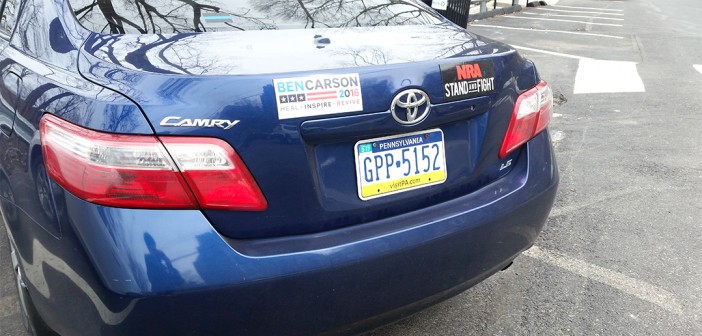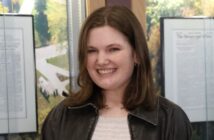In just a few months, Lehigh students will be submitting absentee ballots, heading to polls or avoiding the political process all together.
At Washington and Lee University, students have already picked the presidential nominee. Every four years, a student-run mock convention held at the university predicts the presidential nominee for the non-incumbent party. Since 1948, they’ve been right 19 out of 25 times.
This year, they predicted Donald J. Trump, business tycoon and reality TV star, to win the GOP nomination with more than twice as many votes as the runner-up, Senator Ted Cruz of Texas. In the height of all of the controversy surrounding Trump, it wasn’t an easy decision for the students to make.
Groups on Lehigh’s campus are pushing to get students more politically engaged and offer students access to information on both parties.
A group of seniors in the Global Citizenship program are working on a capstone project called Party Responsibly. The Global Citizenship program incorporates classes, international travel and various activities to foster a cohort of students towards becoming more globally minded. The curriculum is interdisciplinary and works toward challenging students to engage in both our global and local community through capstone projects.
Group member Sarah Berman, ’16, said the project is meant to break down the political apathy on campus.
“Some Lehigh students that know what’s going on in the world, but I would say that the majority do not go out of their way to find out what’s going on in the world,” Berman said.
Berman said because of Lehigh’s conservative alumni base and business driven culture, Trump might be a typical Lehigh student’s favorite.
The second part of the project engages both students and people of the Lehigh community in the political process by hosting small discussions on campus to create a dialogue and to give people a chance to hear differing opinions.
Lehigh College Republicans and College Democrats are two groups geared toward creating a space for political engagement, discussion and education on campus.
Kenneth Brill, ’17, president of College Democrats, believes Trump doesn’t have a chance in the primary, let alone the general election.
“I think it’s an interesting prediction. I feel like a lot of the pundits aren’t really saying that per say,” Brill said. “I definitely think he has some momentum, but I don’t know if that’s enough to carry him through the whole campaign.”
Brill also commented on how the convention and the parties themselves play a large role in who gets nominated, possibly a larger role than we expect.
“I think it’s an interesting way to run the political process, in some ways the parties themselves can have an influence on how the primaries turn out,” Brill said. “It seems like they can bias and massage elections to come out a certain way.”
The College Republicans believe that Trump is a candidate for the radical. According to the College Republicans, people lean more towards radical leaders in a time when they are genuinely unhappy with the state of their government. The club hasn’t made any predictions on their own, but Trump is not high up on their list.
At Washington and Lee University, students partake in a long, meticulous process that involves years of political research and analysis, fundraising and planning, students come to a conclusion on who the next presidential nominee will be. According The New York Times, 150 students conduct interviews and collect information from journalists, academics, party officials and a wide variety of people in the political realm to build a profile of each state’s primary and see who could potentially win.
The convention attracts big names in politics and is regarded as one of the most impressive mock conventions. This year, the convention brought in former Vice President Dick Cheney, former Speaker Newt Gingrich and former chairman of the Republican National Committee, Ed Gillespie. It’s a tradition that has taken place since 1908 and has made its mark on college political engagement. Since the campus first organized the convention in 1908 in response to a speech made by William Jennings Bryant, a populist from Nebraska, it’s become larger each year and has gained the attention and support of several different presidents and elected officials.






Comment policy
Comments posted to The Brown and White website are reviewed by a moderator before being approved. Incendiary speech or harassing language, including comments targeted at individuals, may be deemed unacceptable and not published. Spam and other soliciting will also be declined.
The Brown and White also reserves the right to not publish entirely anonymous comments.